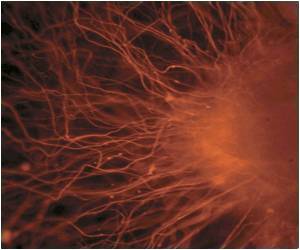- Cardiac stem cells can repair injured heart when injected directly into the heart tissue
- The healing process is mediated by macrophages through an acute innate immune response
- This results in significant improvement in healing of the injured heart
The study, published in Nature, clearly showed that the underlying process by which stem cells heal the injured heart is entirely different from the initial proposal that stem cells replaced damaged or dead cardiac cells. Therefore, the study findings bring about a paradigm shift in the way cardiac stem cells function during the healing process of the injured heart.
Read More..
Study Team
The study was led by Dr. Jeffery D. Molkentin, PhD, who is the Principal Investigator and Director of the Molecular Cardiovascular Microbiology Laboratory at Cincinnati Children’s Hospital Medical Center, Cincinnati, Ohio. He is also a Professor at the Howard Hughes Medical Institute, Chevy Chase, Maryland, USA. The first author of the paper was Dr. Ronald J. Vagnozzi, PhD, who is a Fellow and Investigator in Molkentin’s laboratory.Study Background
The present study is based on previous work published in Nature in 2014 by Molkentin’s group, which showed that injection of c-KIT (CD117) positive cardiac stem cells into a damaged heart was incapable of regenerating the heart muscle cells or cardiomyocytes. Therefore, there was a need to “re-evaluate the current planned cell therapy-based clinical trials to ask how this therapy might really work,” explains Molkentin.Salient Features of the Study
- The following two types of stem cells were used in the study:
- An inert chemical called zymosan that induces an innate immune response was also used in the study
- Injection of dead cells or zymosan also stimulated the healing process in the damaged heart tissue, much like the stem cells
- Stem cell or zymosan therapies altered cellular immunity that led to decreased extracellular matrix connective tissue formation at the site of injury
- Stem cell or zymosan therapies also improved the mechanical properties of the scar tissue
- Zymosan therapy conferred slightly better and longer-lasting health benefits than an injection of stem cells or dead cells
- Stem cells or zymosan need to be injected directly into the heart tissue around the site of injury caused by myocardial infarction (heart attack)
Future Plans
The research team is planning to find ways to modulate the functionality of the cardiac stem cells to accelerate the healing process. This could lead to the development of improved stem cell-based therapies for heart disease in the future.Concluding Remarks
“The innate immune response acutely altered cellular activity around the injured area of the heart so that it healed with a more optimized scar and improved contractile properties,” Molkentin says. “The implications of our study are very straightforward and present important new evidence about an unsettled debate in the field of cardiovascular medicine.”Funding Source
The study was funded by the National Institutes of Health (NIH), the National Heart, Lung, and Blood Institute, the Howard Hughes Medical Institute, and the American Heart Association, USA.Reference:
- An Acute Immune Response Underlies the Benefit of Cardiac Stem-cell Therapy - (https://www.nature.com/articles/s41586-019-1802-2)
Source-Medindia
















